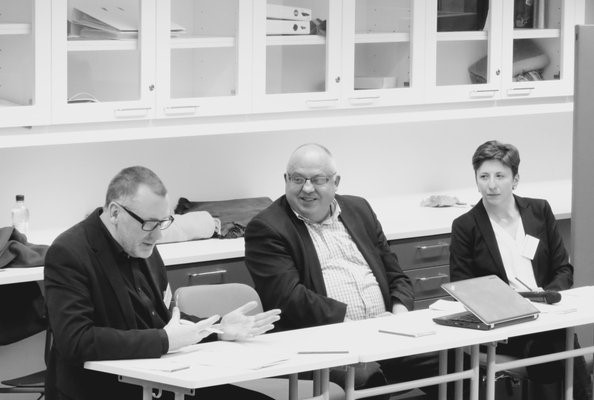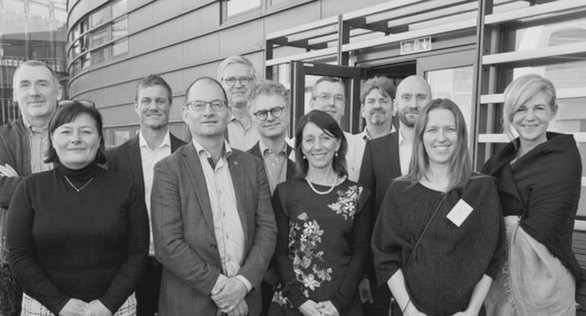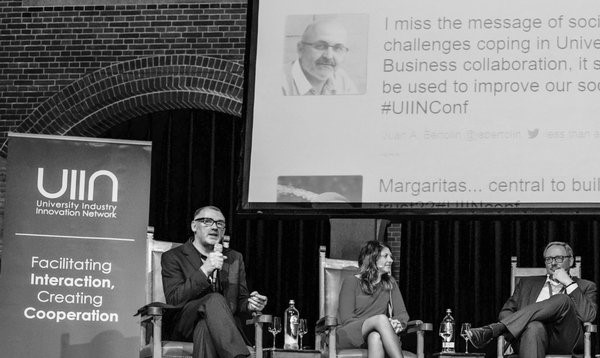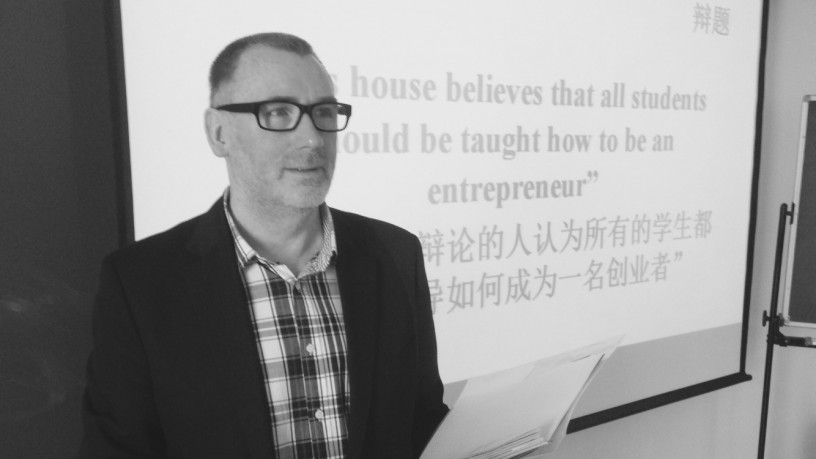In the spotlight:
Name: Paul Coyle
Location: London, UK
Occupation: Director of the Entrepreneurial Mindset Network
You are an influential individual within the enterprise education space. What does ‘enterprise education’ mean to you, and why do you think it’s important?
Through my consultancy, I have the opportunity to work with students, academics, HE leaders, university business-collaboration teams and start-ups. My passion is helping all these people to benefit from the power of an entrepreneurial mindset. I believe that enterprise education can help students develop the right approach and, therefore, increase their ability to make their own way in the world. Sometimes this preparation for ‘real life’ is seen as additional to the core curriculum and provided only in options or extra-curricular activity. However, I think it is important that enterprise education is fully embedded within the core curriculum.
How did you first become involved with enterprise education?
When I first started my career I taught computing in a Polytechnic. Back then we didn’t talk about ‘enterprise education’, but we were very aware that we were trying to both educate students for the long-term and, at the same time, help them to get their first job. All these years later, I was reminded that there is still work to be done when I ran a workshop in Melbourne, Australia, for a team of young academics who are working to integrate enterprise into a whole range of different subjects.
How has enterprise education changed over the years, and how does it benefit students today?
There is no doubt that the range and quality of support for students has improved and is continuing to do so. What’s particularly exciting is to see students organising enterprise support for themselves, whether that be inviting in guest speakers or setting up enterprise clubs. As I run a business myself, I am always delighted to be asked to speak to students with entrepreneurial ambitions or to be a judge for student pitches.

Paul Coyle judges student pitches at HAMK University of Applied Sciences in Hämeenlinna, Finland.
You support the development of entrepreneurial universities in Asia, Australia, Europe, North America and the UK. How does Britain’s attitude to enterprise education differ to our overseas counterparts?
One of the great pleasures of my consultancy is that I get to work with educators from all over the world, seeing the common challenges and the many instances of innovative practice. The UK has a lot it can contribute to these international debates, but it also has a lot to learn. For example, last year I saw some really simple but highly effective ways of using social media to support the introduction of enterprise teaching in China.
You train educators to teach more entrepreneurially. What methods and practices do you suggest they adopt?
I like to keep things simple. Educators primarily need to ask themselves what ambitions they have for their students. Then those ambitions need to be written into the curriculum, and the educator needs to choose the most appropriate learning experiences by which a student can achieve those learning outcomes. It is also crucial that assessment is well-designed so students get the feedback that will help them to improve. I think the most important and challenging question for an educator is, “If my students are going to be more enterprising, what knowledge and skills do I need to have as their educator?” Never stop learning!
There’s an age-old debate about whether entrepreneurs are born or made. Can you weigh into this?
You can definitely teach people how to do the things that entrepreneurs do to set up, run and scale companies. You can also educate people to develop the right mindset so that they will have the confidence to take personal responsibility for tackling some of the biggest challenges in the world. We all need to aim high and also encourage the highest ambitions in others. People will usually give you ten reasons why you shouldn’t do something; the entrepreneur simply asks, “How do we make this happen?”

Paul Coyle with the first cohort of his international workshop, Developing the Entrepreneurial Mindset, in London.
For students who don’t want to be entrepreneurs, what other benefits does enterprise education provide?
Not everybody will want to be an entrepreneur, but everybody can benefit from having an entrepreneurial mindset. I believe that education should prepare students to make informed choices about employment, self-employment and entrepreneurship. Enterprise education is an important part of helping students to understand how to make those choices.
Where do you hope to see enterprise education in five years’ time?
One of the biggest challenges that I see for most institutions is how to scale up their enterprise activities beyond one or two initiatives that are dependent on enthusiasts and short-term funding. I want to help educators and HE managers develop proven models for scaling enterprise as a sustainable activity across a whole institution.
What does a typical day look like in the world of Professor Paul Coyle?
It starts by reminding myself of the priorities on my to-do list. I could be in my office, on my way to the airport, or on-site with a client. Wherever I am, a fast internet connection is essential for accessing all my files in the cloud, drafting new reports and presentations, updating my website, for communicating by email and Skype, booking flights and hotels, updating Twitter and LinkedIn, keeping up with the latest reports and research, and keeping in contact with people on the other side of the world.

Paul Coyle chairs a panel discussion on the topic of university business collaboration at the University Industry Innovation Network conference in Amsterdam.
And finally, Paul, tell us: if you were an animal, what would you be and why?
A unicorn – in the sense of a start-up company with a value of over $1 billion. My latest venture is the Entrepreneurial Mindset Network. I don’t know yet whether this company can ever become a unicorn but, as Albert Einstein said, “Imagination is everything. It is the preview of life’s coming attractions.”





Leave a Reply